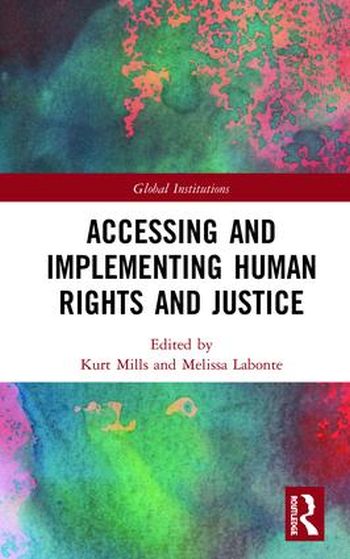
Accessing human rights and justice mechanisms is a pressing issue in global politics. Although an understanding of justice is inherent in broad human rights discourses, there is no clear consensus on how to develop adequate means of accessing them in order to make a difference to people’s lives. Further, expansions of the boundaries of both human rights and justice make any clear and settled understanding of the relation difficult to ascertain.
This volume tackles these issues by focusing on the dilemmas of accessing and implementing human rights and justice across a range of empirical contexts while also investigating a range of conceptual approaches to, and understandings of, justice, including issues of equality, retribution, and restoration, as well as justice as a transnational professional project. The contributors, representing a range of disciplinary backgrounds and diverse voices, offer empirical examples from Afghanistan, Democratic Republic of the Congo, Syria, Tunisia, and Uganda to explore the issues of accessing and implementing human rights and justice in conflict, post-conflict, and transitional settings.
This work will be of interest to students and scholars of international relations, human rights, international criminal justice, and conflict response.